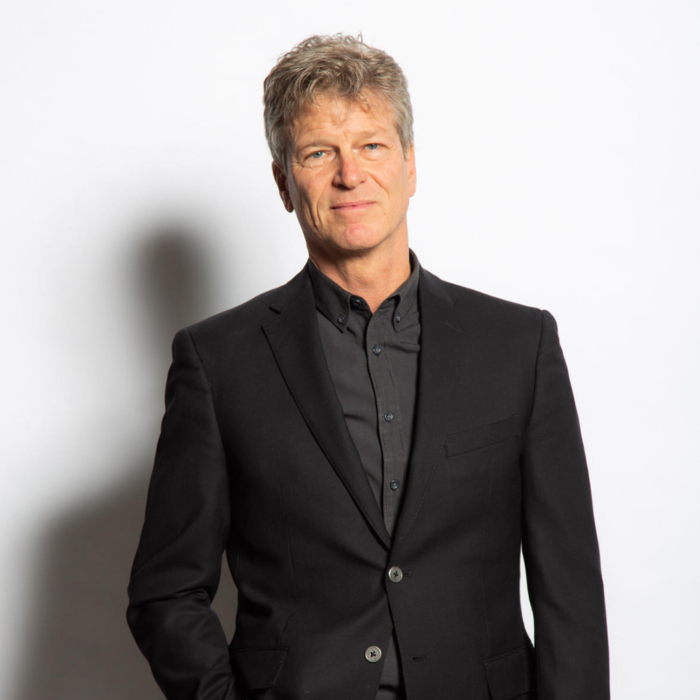Episode 3: Susan Jones

Episode 3: Susan Jones
1/27/2021
Tom speaks with Susan Jones, architect and founder of Atelier Jones. Her work entwines design and research to embrace methodologies mined from sustainability and materials research, high-performance building systems from mass timber to modular prefabrication, historic preservation and adaptive reuse strategies and real estate development as well as community activism. Atelier Jones builds homes, infill urban housing, shops, churches, offices, schools, gardens, theaters, prayer chapels and biodiesel stations.
For more information, you can visit:
www.atelierjones.com/
Architect and founder of Atelier Jone
(atelierjones llc)
Article written by Sophia_Eve
Embracing Sustainable Architecture: A Conversation with Susan Jones
Take a deep dive into a fascinating audio talk with Susan Jones, the inspirational architect and creator of Atelier Jones, as we explore the realm of sustainable design and innovation. Susan's work defies conventional boundaries and takes an interdisciplinary approach to creating amazing settings. She has a love for design, research, and community action. Susan Jones leads us on an inspirational trip that integrates aesthetics, functionality, and environmental responsibility, including sustainable approaches, high-performance building systems, historic preservation, and community-driven solutions.
In this article, we break down the podcast's important points while also exploring Susan's unique viewpoint on providing superior cladding solutions that not only promote a beautiful and budget-friendly living space but also a healthy one. Join us as we investigate the delicate balance between design and sustainability, the transformational potential of adaptive reuse, and the significance of interacting with communities to produce architectural legacies that endure.
Exploring Sustainable Methodologies
Susan Jones is certain that the sustainability of architectural design should come first. Her work has a strong foundation in the approaches she uses, which are drawn from sustainability and materials research. Atelier Jones works to design buildings that have a low effect on the environment by using cutting-edge and environmentally sensitive techniques including mass wood construction and modular prefabrication. Susan is aware of the significance of applying environmentally friendly products and methods that increase energy efficiency, cut waste, and improve occupant wellbeing.
High-Performance Building Systems
In order to improve the usefulness and effectiveness of their ideas, Atelier Jones is in the forefront of using high-performance building solutions. Susan wants to build buildings that not only have a less carbon footprint but also have a distinctive aesthetic appeal. She does this by using the possibilities of mass wood, a renewable and carbon-sequestering material. The company optimizes the building process, resulting in quicker and more affordable projects by integrating modular prefabrication technology. Susan's focus on high-performance building systems exemplifies her dedication to expanding the possibilities for environmentally friendly construction.
Historic Preservation and Adaptive Reuse
Susan Jones values innovation, but she also understands the need of protecting old structures and advancing techniques for adaptive reuse. Older buildings have intrinsic cultural and architectural importance, which Atelier Jones tries to preserve while giving them new vitality. Susan strikes a beautiful balance between the past and the present by reusing old structures and incorporating them into cutting-edge designs. By reusing existing materials, this strategy not only lowers waste but also aids in maintaining a feeling of legacy.
Community Activism and Real Estate Development
Susan Jones is a community activist in addition to her aspirations in architecture. Atelier Jones approaches design holistically, taking into account the social, economic, and cultural aspects of each project. Susan makes sure that her designs are customized to fulfill their unique requirements and objectives by interacting with the neighborhood community and stakeholders. Atelier Jones seeks to build smart real estate projects that result in settings that encourage social interaction and community participation. Susan's dedication to community participation reflects her conviction that architecture has the ability to have a beneficial influence on society.
Delivering Quality and Aesthetics
Delivering the highest-quality goods and solutions is very important to Atelier Jones. Susan Jones is aware that achieving a sustainable design does not need sacrificing functionality or beauty. Susan makes aesthetically pleasing buildings that elevate and inspire people by combining her knowledge of sustainability with her excellent eye for design. Her effort to provide aesthetically pleasing and reasonably priced cladding options reflects her aim to open up sustainable buildings to a wider audience.
Creating Healthy Living Environments
The objective of Atelier Jones includes giving top priority to the development of healthy living spaces. Susan Jones is aware of the significant effects that architecture can have on people's lives and the health of whole communities. Her designs strive to improve the quality of life for residents by using biophilic design concepts, natural lighting, enough ventilation, and sustainable materials with low toxicity levels. Susan works to create healthy environments that encourage creativity, productivity, and general enjoyment. She does this via her intelligent and environmentally friendly designs.
Collaboration and Knowledge Sharing
Susan underlined the value of cooperation and information exchange within the design community throughout the episode. She thinks that architects and designers may collaborate to discover creative answers to environmental problems by exchanging ideas and working together. To encourage conversation and the sharing of ideas with other experts, Atelier Jones regularly participates in conferences, seminars, and industry events. Susan's dedication to cooperation demonstrates her faith in the ability of group effort to bring about long-lasting change in the architectural industry.
Environmental Responsibility and Ethical Design
Each project is taken on by Atelier Jones with a strong sense of environmental responsibility. Susan Jones is certain that architects have a duty to reduce the ecological impact of their work and to build environments that honor and seamlessly blend with the surrounding environment. Atelier Jones serves as a model for moral design that puts the welfare of the environment first by incorporating sustainable design principles, including energy-efficient technologies, rainwater collection, and green areas.
Addressing Climate Change
Susan Jones acknowledges the importance of architects in solving the critical global problem of climate change. Through their projects, Atelier Jones actively works to combat climate change by lowering carbon emissions, supporting the use of renewable energy, and employing sustainable materials. Susan fights climate change while constructing aesthetically pleasing and structurally sound buildings by embracing mass wood construction, which functions as a carbon sink by capturing carbon dioxide.
Inspiring Future Generations
Future generations of architects and designers should place a high priority on sustainability and environmental stewardship, says Susan Jones. She aspires to foster a profound knowledge and enthusiasm for sustainable architecture in aspiring professionals via mentoring programs, educational efforts, and lobbying for sustainable design principles. Susan thinks that architects can significantly contribute to creating a future for our world that is more sustainable and resilient by instilling this thinking in them from the beginning of their careers.
Conclusion
Pioneering architect Susan Jones, who founded Atelier Jones, has effectively included sustainability, material research, high-performance building systems, historic preservation, and community action into her work. Susan works to develop healthy living spaces that satisfy the aesthetic and performance requirements of the design community via new techniques and an emphasis on environmentally responsible design solutions. Her dedication to providing top-notch cladding solutions that are appealing, reasonably priced, and sustainable is evidence of her desire for an architectural future that is more inclusive and sustainable.



